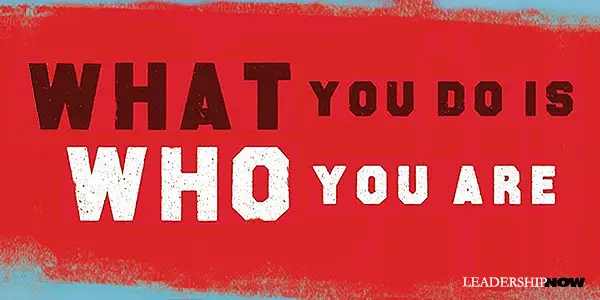 |
 |
04.19.21

What You Do Is Who You Are
IT HAS BEEN SAID that culture is the most important thing because it determines how your company makes decisions when you’re not there. This led Ben Horowitz to ask, how do you create and sustain the culture you want? He turned to three historical figures and one contemporary that were “outstandingly effective in getting the culture they wanted.” He wasn’t so interested specifically in the culture they produced but what they had to do to change themselves and their culture. In What You Do Is Who You Are, Horowitz looks at the lives of four cultures created by their leaders: Toussaint Louverture, the Haitian slave that led the only slave revolt in human history. The samurai who ruled Japan for seven hundred years and shaped modern Japanese culture. Genghis Khan, who built the world’s largest empire. Shaka Senghor, and American ex-con who created the most formidable prison gang in the yard and, ultimately, transformed prison culture. Companies—just like gangs, armies, and nations—are large organizations that rise and fall because of the daily microbehaviors of the human beings that compose them.
1. Make sure your culture aligns with both your personality and your strategy. How do you know when something is wrong with your culture? Horowitz point to three indicators: The wrong people are quitting too often, you’re failing at your top priorities, and an employee does something that truly shocks you. Some final thoughts: The best way to understand your culture is not through what managers tell you, but through how new employees behave. What behaviors do they perceive will help them fit in, survive, and succeed? By the way, Peter Drucker’s statement that “culture eats strategy for breakfast” actually speaks the exact point Horowitz is making: “What you do is who you are.” If your culture isn’t aligned with your strategy, then culture rules the day. In the long run, a strategy not supported by culture falls flat. Execution works in concert with culture. 
Posted by Michael McKinney at 08:44 AM
|
BUILD YOUR KNOWLEDGE


How to Do Your Start-Up Right STRAIGHT TALK FOR START-UPS 
Grow Your Leadership Skills NEW AND UPCOMING LEADERSHIP BOOKS 
Leadership Minute BITE-SIZE CONCEPTS YOU CAN CHEW ON 
Classic Leadership Books BOOKS TO READ BEFORE YOU LEAD |